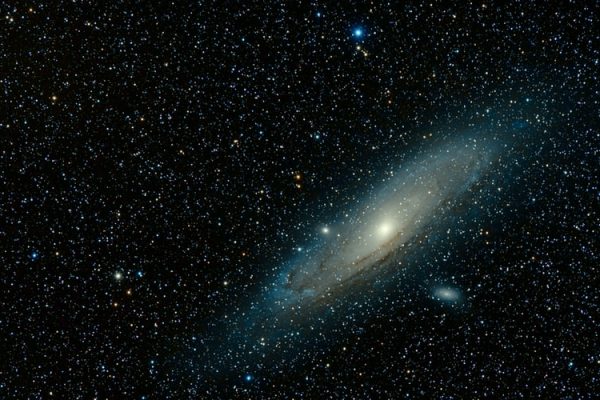What does Islam say about truly believing in One God?
What does Islam say about truly believing in One God?
The essence of the religion of Islam is that there is only one God (Allah), and He alone is worthy of worship. Nobody has any share in His Lordship or worship.
This is the fundamental belief that constitutes the very foundation of Islam. The whole system of the Islamic way of life- both spiritual and temporal- is constructed upon this central pillar of faith. This paper intends to assert that God nominated this way of life as the religion for mankind from the very beginning of their creation and repeatedly called upon them, through prophets, to believe in and follow this religion over time.
His call started with the first man, Prophet Adam (peace be upon him), which will remain open until the world’s last day. This paper will conduct the incumbent discussion in four phases.
First, it will trace the history of human creation and God’s covenants from human souls. Second, it will reveal the episode of the deposition of Adam and Eve from Paradise and God’s prescription for them to follow on the earth. Third, it will provide an overview of the prophetic missions of the past. Last, the paper will consider the message of the last Prophet, Muhammad (peace be upon him), given God’s original and continued mandate of propagation of His religion.
Human Creation and Covenant with God
At the pretemporal creation of humans, God, the Sole Creator and Sustainer of the universe, took out (in a state of souls) the descendants of all humans from their backs and asked them, ‘Am I not your Lord.’ They replied in the affirmative. This is the pretemporal, unmediated, and direct covenant between God and humans.
Following this covenant, God created an innate understanding of His Oneness in human hearts so that they could realize the truth of the prophetic call to believe in and obey Him (Qur’an, 30:30). Thus, the pretemporal covenant forms the base of the prophetic mission of reminder, and serves a dual purpose.
First, after acknowledging and declaring God’s Lordship (that He is the Only One God of theirs) followed by the prophetic reminder, they will not be able to make an excuse upon being held liable for disbelieving in Him on the Day of Judgment, that they were not aware of His Sole Lordship (Qur’an, 7:172).
Second, still, if they follow their forefathers’ disbelief and make a partnership with God or deny Him altogether, there will be no way to argue on the Day of Judgment that they just followed their forefathers, so they should not be punished (Qur’an, 7:173). After confirming His Lordship and mentioning the pretemporal covenant, God expects humans to realize the truth and turn to Him in repentance, accepting His Tawheed (Oneness and Sole Lordship (Qur’an, 7:174).
Adam’s Deposition from Paradise and the Prescription of God
Allah created the first man, Adam (peace be upon him) (Qur’an, 7:11), and chose Hawwa (Eve) for him as a companion (wife). He asked them to live in Paradise and enjoy His blessings, forbidding them from even approaching a particular tree (Qur’an, 7:19).
However, the Devil was after them and did a trick to depose them from Paradise. He told them that if they ate the fruits of the forbidden tree, they would be able to live there forever. And they were trapped in the deceit and ate the fruits. At this, Allah was displeased as it breached His Command. They begged Allah for forgiveness. He ordered them to leave Paradise and to go down to the earth to live a temporary life so that their obedience could be tested (Qur’an, 7:20-25).
He commanded them: “Go down from it, all of you. And when guidance comes to you from Me, whoever follows My guidance – there will be no fear concerning them, nor will they grieve (Qur’an, 2:38). Thus, Adam, Eve, and their children- the humankind- were commanded to follow Allah’s Guidance so that they could regain Paradise.
Now, what is the ‘Guidance’ Allah referred to above? That is the way of life He prescribed for mankind as follows:
O people! be careful of (your duty to) your Lord, Who created you from a single being and created its mate of the same (kind) and spread from these two, many men and women; and be careful of (your duty to) Allah, by Whom you demand one of another (your rights), and (to) the ties of relationship; surely Allah ever watches over you (Qur’an, 4:1)
( Translated by Shakir at https://corpus.quran.com/translation.jsp?chapter=4&verse=1).
Here, the above verse provides two sets of duties of mankind. First, duty to Allah- worshiping Him alone without taking any other partner. Second, duties to men according to Allah’s law (Shari’ah). In other words, this verse demands that all aspects of human life be governed by Allah’s prescribed way of life (Shari’ah), which, as mentioned above, is Islam. That is Allah’s only way of life for mankind (Qur’an, 3:19). And, on the Day of Judgment, no other way of life will be acceptable to Him (Qur’an, 3:85).
Prophetic Missions of the Past
As per Allah’s promise, He sent guidance to Adam (peace be upon him) and his children over time, appointing him and a selected number of people as His prophets, numbering more than a hundred thousand. The Qur’an mentions 25 prophets.
For example, in one place, it says, “Indeed, Allah has chosen Adam, Noah, the family of Abraham, and the family of ‘Imram (as prophets) to the people” (Qur’an, 3:33). All of the prophets (peace be upon them all) preached one and the same message to their people, namely ‘worship only One God.’
To quote the Words of Allah, “And definitely, We sent amongst every nation a messenger [with the message], ‘Worship Allah and avoid (obeying) false gods’ (Qur’an, 16:36). We may take examples of some of the prophets (peace be upon them all) below.
Prophet Nuh (Noah) (peace be upon him-PBUH) called his people to Allah in the following words, “O people! Worship Allah; you have no god other than Him; surely I fear for you the chastisement of a grievous day (Day of Judgment)” (Qur’an, 7:59).
Prophet Ibrahim’s (Abraham) father and people used to worship idols along with Allah. Disassociating himself from them, he (PBUH) declared, “Other than the Lord of the worlds (Allah), all gods (idols) were my enemies. (Because Allah is He) Who created me and guided me. And (it is He) Who gives me food and drink. And (it is He) Who cures me whenever I am sick. And (it is He) Who will grant me death and then life” (Qur’an, 26: 77-81).
Prophet Ibrahim (PBUH) prayed to Allah to make him and his progeny among from Muslims (Qur’an, 2:128). Then, Allah commanded him to submit, in other words, to be Muslim by believing in His Oneness, and he instantly submitted (became a Muslim) (Q., 2:231).
Similarly, Prophet Ibrahim’s (PBUH) sons, Ismail and Ishaq (PBUT), were Muslims. Prophet Ishaq’s (PBUH) son, Yakub (PBUH), was a Muslim, and he took a promise from his children to worship only One God after his death (Q. 2:132-133).
Yusuf (Joseph), a son of Yakub, addressed people who worshiped gods other than Allah thus- “Those whom you worship besides Him are but names which you have named, you and your fathers, for which Allah has sent down no authority. The command is not but for Allah. He has commanded that you worship none but Him. That is the correct religion, but most people do not know.” (Qur’an, 12:40). Prophet Musa (Moses) (PBUH) answered Pharaoh’s question as to who was his Lord in the following words, “Our Lord is the One Who has created all things and has given guidance” (Qur’an, 20:50).
At another place, he described Allah as the “Lord of the heavens and the earth and all that is between them” (Qur’an, 26:24). Prophet ‘Isa (Jesus) also propagated the Oneness of God. To quote the Qur’an, “O Children of Israel, worship Allāh, my Lord and your Lord. Indeed, whoever partners with Allah, Allah has forbidden Paradise for him, and his abode is the Fire. And there will be no helpers for the wrongdoers” (Qur’an, 5:72).
Prophetic Mission of Muhammad (peace be upon him) as a Continued Legacy of the Past
In the chain of prophets, the final one was Prophet Muhammad (peace be upon him) (Qur’an, 33:40). He was the prophet of humankind of the world. That is why he called people to Allah in the following words:
“O mankind! I am indeed Allah’s Messenger unto you.” (Qur’an, 7:158).
Allah took covenants from preceding prophets and their followers to recognize him, follow him, and help him if they met him in their lifetime (Qur’an, 3:81).
It is of particular mention that Prophet Musa (Moses) and Prophet ‘Isa (Jesus) gave the glad tidings of the advent of Prophet Muhammad after them and told them to follow him. Allah mentions this in the Qur’an and declares the success of those who follow him as their prophet. To quote the Qur’an,
Those who follow the Messenger, the Prophet who can neither read nor write [i.e. Muhammad (peace be upon him)] whom they find mentioned in the Taurat (Torah) (Deuteronomy, 18:15) and the Injeel (Gospel) (John 14:16), – he commands them for good and forbids them from evil; he allows them what is good and forbids them from what is bad, he releases them from their heavy burdens (of Allah’s Covenant, e.g., tearing off the part of cloth tainted with impurity), and from the fetters (bindings) that were upon them (e.g., filthy customs like killing of baby girls, no inheritance by women).
So those who believe in him [Prophet Muhammad), honour him, help him, and follow the light (the Quran) which has been sent down with him, it is they who will be successful. (Q., 7:157).
Prophet Muhammad brought the same religion (Islam) as it was propagated by all prophets before him (Qur’an, 21:25; 42:13) and invited mankind to worship Allah alone and forbade them from partnering any other god with him (e.g., Qur’an, 12:108).
In an extended sense, he called people to follow the code of life prescribed by Allah propagated and practiced by him in the real life. Allah says, “(O Believers!) Take whatever the Messenger gives you (orders you to do) and shun whatever he forbids” (Qur’an, 59:7).
Conclusion
As discussed above, all prophets were from Allah, and all of them propagated one and the same religion- the religion of worshiping and obeying Only One God (called Tawheed) (Qur’an, 6:90; 21:25; 42:13). It is the Religion of Islam- the code of life (Qur’an, 3:51).
Prophet Muhammad came as the Seal of prophets, and with him, Allah completed the religion and nominated it as the only religion and way of life: “This day, I have perfected your religion for you, completed my favor upon you, and have chosen Islam as your religion.” (Qur’an, 5:3).
Thus, all prophets are brothers in the religion of Islam, and their followers are one Ummah (nation) (Qur’an, 21:92; 23:52). Unfortunately, a very small number of the followers of the previous prophets, Jews and Christians in particular, accepted Prophet Muhammad and his message of Islam. Most of them ignored the Prophet because of jealousy and hatred, as confirmed by the Qur’an- “And those who were given the Scripture did not differ except after knowledge had come to them – out of jealous animosity between themselves” (Qur’an., 3:19).
Allah will make the truth clear on the Day of Judgment (Qur’an, 32:25), but there will be no time for people to correct their beliefs. There will be no return to this world again. That Day, the eternal success will be for those who truly believed (Qur’an, 23:1; 2:112).





